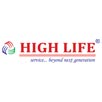The curriculum of Pharmacy (B. Pharm.) consists of preparatory and core required subjects that provide students with practical, concepts, and theories in pharmaceutical sciences. The curriculum of pharmacy provides analytical skills and problem-solving knowledge that is applicable to the pharmaceutical and health care system.
Pharmacy curriculum are designed to provide a deep understanding of the pharmaceutical field. The curriculum of pharmacy includes theory & practicals each year. Also, includes the project works, industrial training, practice school, & elective subjects to make inclusive development of students.
The curriculum of Pharmacy covers all the aspects of the pharmacy field and delivers a wide range of career opportunities. Below are some of the career fields that you can enter with a degree or diploma in pharmacy.
Production:
In pharmaceutical organizations, Pharmacy professionals are keeping up with the production plant of the organization. This job requires you to deal with the manufacturing of different tablets, packaging of medicines, and fabricating a great deal of medication. Moreover, the finished product supply must be done in a fixed time and the Production personnel has to ensure the product quality at the same time.
Marketing:
Anyone with good communication skills and a great personality can get a chance to be a Therapeutic Sales & Marketing Representative (MR-Ship Occupation). Organizations prefer Pharmacy graduates for this field, as they have sufficient knowledge about the medication practices, their restorative impacts, the component of activity of medication, and the medicine. Aspiring candidates can grow in this field up to the level of head of the division and Managing Directors.
Quality Assurance/ Quality Control:
The graduates in Pharmacy offer you to get your hands on the position of Quality Assurance/ Control Manager. The job responsibility is to ensure the quality of medication in the organization. In addition, they have to keep eye on every update in the administrative standards in order to maintain the quality of medicines according to the latest guidelines. Also, they can function as Quality affirmation or quality control officers/directors in different organizations.
Research and Development:
The Research and development field incorporates growing new methods or modifying the present methods for better ones. In India, generally non-specific medication organizations hire freshets. Do you keep a check on forthcoming patents? If yes, then you are great to go, otherwise, start keeping an eye on the net for the same. As the employers look for the candidates who have gained such knowledge through the internet and other primary & secondary sources.
Drug Inspector
The work of the Drug Inspector or Investigator is specifically identified by controlling the medication robbery and deception. The retail medical stores and pharmaceutical organizations are in their regulations to look out if there is any illicit conflict with the medication rules.
They have the authority to make a move against the Pharmacist/Chemist who is giving any sort of help to duplicate drugs, which is exceptionally unsafe for the patient. Nowadays, the number of cases and rackets of duplicity are increasing. So, the work of officers has expanded at this point.
Furthermore, they have a duty to stop such sort of ill-conceived work.
Hospital Pharmacist:
Hospital Pharmacists oversee administering and acquiring therapeutic items and supplies utilized as a part of the clinic in the hospitals. Also, they can work in healthcare centers, clinics, nursing homes, etc. Their responsibilities and obligations, aside from the core function, incorporate working with another restorative faculty. Also, they give medications and counselling to the patients, keep track of the patients medical history and look after the medications and hospital supplies.
Drug Analyst/Analytical Chemist:
A wide range of methods is utilized by a drug analyst/analytical chemist to analyze a drug substance or medicines like electrochromatography, elite fluid chromatography, and spectroscopy. And, their duty includes developing new analytical methods, analyzing, and interpreting data, etc. Also, they must keep the track of data as per the guidelines given. And, they must write reviews on the basis of their research and analysis.
| First Semester | |||
| S. No | Subject | Credit | |
|---|---|---|---|
| 1 | Human Anatomy and Physiology - Theory | 4 | |
| 2 | Pharmaceutical Analysis I - Theory | 4 | |
| 3 | Pharmaceutics I - Theory | 4 | |
| 4 | Pharmaceutical Inorganic Chemistry - Theory | 4 | |
| 5 | Communication Skills - Theory | 2 | |
| 6 | Remedial Biology/ Mathematics - Theory | 2 | |
| 7 | Human Anatomy and Physiology - Practical | 2 | |
| 8 | Pharmaceutical Analysis I - Practical | 2 | |
| 9 | Pharmaceutics I - Practical | 2 | |
| 10 | Pharmaceutical Inorganic Chemistry - Practical | 2 | |
| 11 | Communication Skills - Practical | 1 | |
| 12 | Remedial Biology - Practical | 1 | |
| Second Semester | |||
| S. No. | Subject | Credit | |
|---|---|---|---|
| 1 | Human Anatomy and Physiology II - Theory | 4 | |
| 2 | Pharmaceutical Organic Chemistry I - Theory | 4 | |
| 3 | Biochemistry | ||











